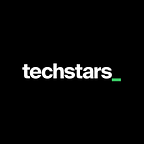The Best Advice For Student Founders, From Student Founders
It’s back to school time, founders! We can just smell the new books and excitement as students get ready for a new year.
Why are we so excited about the new school year? Because we know that for some ambitious young people out there, this will be the year they start a company, inspired by some new problem that they see or learn about at school. It means new students at the proliferating entrepreneurial programs at universities around the world. It means more smart startups from more smart entrepreneurs — and we’ve gotta love that.
However, we’ll be the first to acknowledge that starting a company while you’re in school can be daunting. Some people will even tell you it’s a bad idea — that you should focus exclusively on school, or that entrepreneurs shouldn’t go to college — but we disagree. College and grad school are an amazing time found a company:
- You’re surrounded by smart people to work on your startup with;
- Many universities offer resources, competitions, and awards to student entrepreneurs;
- You can take entrepreneurship classes and work on your startup for credit!
Student entrepreneurs, we want you to succeed! That’s why we asked founders from the Techstars worldwide network for their best pieces of advice for student entrepreneurs. Here’s what they said:
“Leverage your teachers. Ask for their feedback and connections as much as possible. Have them endorse you on LinkedIn. Make them your mentors!”
Alex Shadrow, founder of Relovv, which she started as a student at Boston University. Currently in Techstars Class 139 at Techstars Los Angeles Accelerator.
“Keep going! Starting a company is a game of persistence. You’re probably not used to trying your hardest and failing; this will definitely happen. It’s a hard road early on, but if the idea still makes sense to you, than my advice is to keep going! Your break will come.”
Jeff Zhou, founder of Fig, which he started as an MBA student at the Wharton School at the University of Pennsylvania. Graduated from Techstars Class 69 at Techstars Seattle Accelerator.
“Understand what you’re in school to learn: this helps shapes your priorities around your business, your course work, your social life, and self care. Additionally, look for synergies… a lot of the courses are theoretical, and building a startup gives you the opportunity to test some of these theories in practice and actually absorb the theories better.”
Grace Chiang, founder of Mani.Me. Currently at Stanford pursuing an MBA and a Masters in Education, and in Techstars Class 131 at Stanley+Techstars Additive Manufacturing Accelerator.
“Entrepreneurship is more than disrupting an industry, it’s about shaping an era.”
Niel Patel, founder of Runerra, which he founded as an undergrad at the University of Minnesota and in Techstars Class 144 at Techstars Retail, in partnership with Target.
“Take advantage of all the resources you can for your company: professors, fellowships, competitions, funding opportunities, alumni networks, etc.”
Genevieve Barnard Oni, founder of MDaaS Global. Currently doing a dual degree program: MBA at MIT and MPA at Harvard Kennedy School, and in Techstars Class 129 at Techstars Impact Accelerator.
“Nothing replaces hard work and the courage to take risks. Know that the sacrifices you make now will pay off in the future.”
Anthony Pham, founder of Speeko. Currently pursuing a Masters of Public Health and Medical Residency Training at the University of Iowa, and in Techstars Class 134 at Techstars Chicago Accelerator.
“If you’re worried that starting your own company is risky, consider this: Failed entrepreneurs have some of the best job prospects. They have product and marketing skills. Successful entrepreneurs are rich. So really, what do you have to lose?”
Vishnu Indukuri, founder of Trala, which he started as a student at the University of Illinois Urbana-Champaign. Currently in Techstars Class 134 at Techstars Chicago Accelerator.
“Don’t listen to your professors, mentors, or other people with authority who say that your idea/company is incompatible with academic success or otherwise not worthwhile pursuing. Lots of people told me not to do this, and I’m very glad that I didn’t listen. Leverage your time at university to get as much out of it as you can, while still being aware of IP agreements.”
Anna Scott, founder of Troposphere, which she founded while pursuing her PhD at Johns Hopkins University. Currently in Techstars Class 129 at Techstars Impact Accelerator, which she started two days after defending her doctorate!
“Milk the resources available on your campus. I was able to get free legal services from the law and entrepreneurship clinic, Recruit hustlers through the student org network.”
Alex Canter, founder of Ordermark. Graduate of Techstars Class 122 at Techstars Boulder Accelerator. Founded a company while he was a student at University of Wisconsin–Madison. In his words, “It failed very quickly, but I learned a lot :)”
“Leverage your inexperience. People perceive students as being in a position of learning, so those who are more experienced are willing to offer their knowledge and help. Take advantage of this. Network as much as possible and learn from those around you.”
Andy Kieatiwong, founder of Additive Rocket Corporation, which he started as an undergrad at the University of California, San Diego. He’s currently in the Executive MBA program at the University of Nevada, Las Vegas, and he’s a graduate of Techstars Class 103 at Techstars Adelaide Accelerator.
